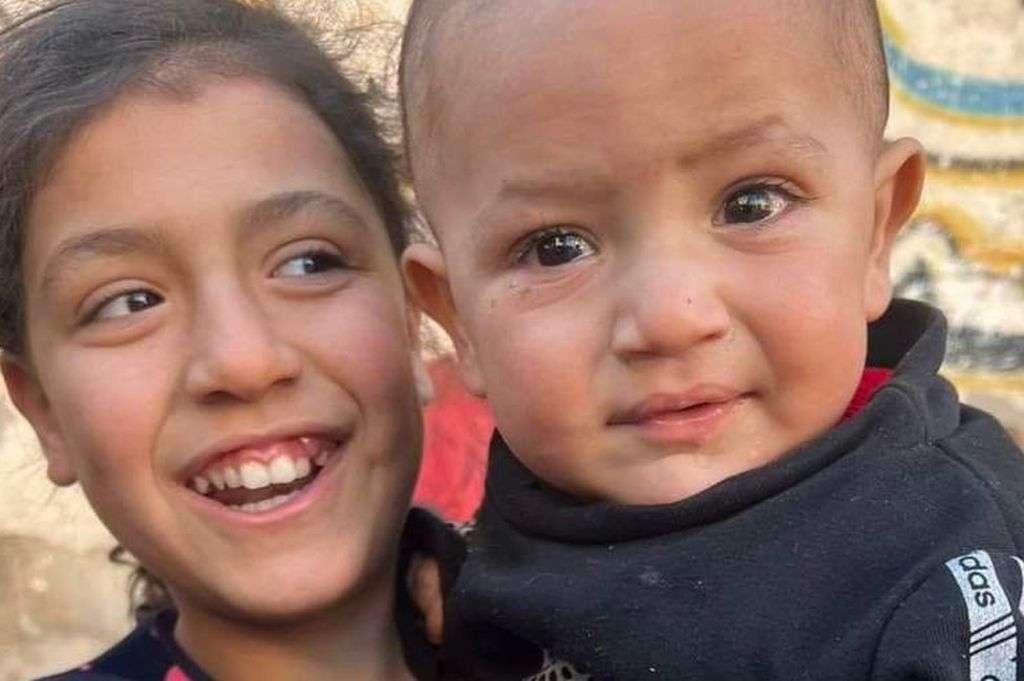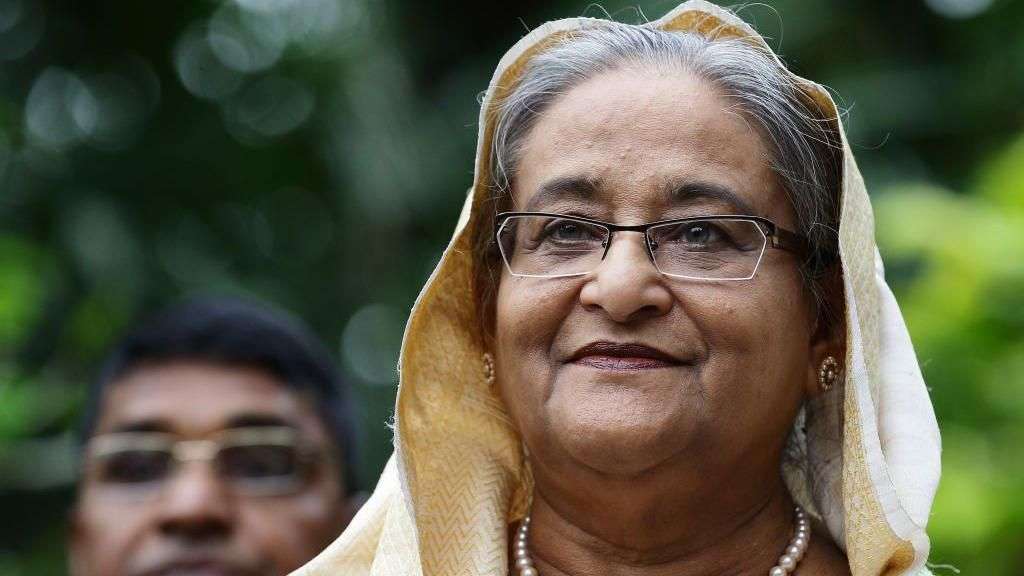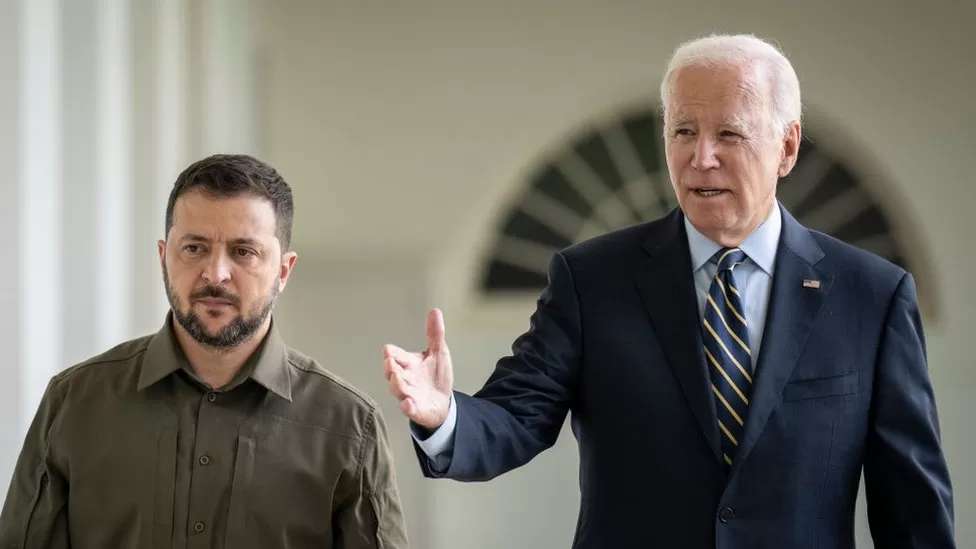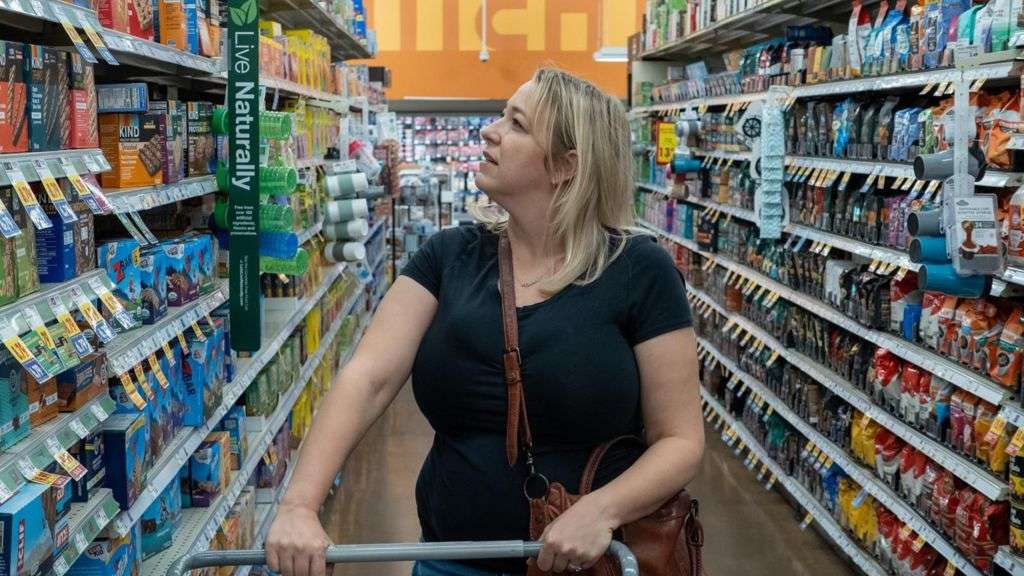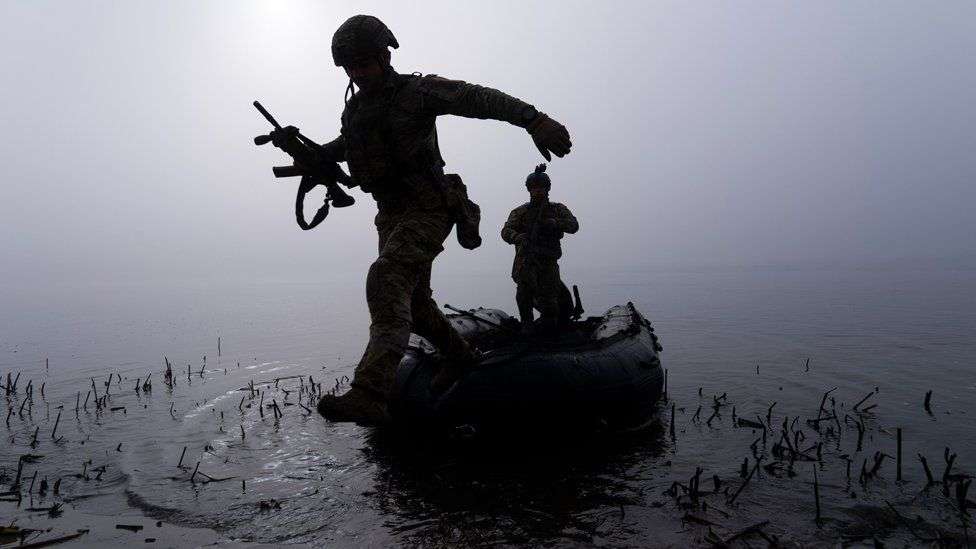In video recorded by a Palestinian rescuer, a shout comes from under mounds of smashed concrete. "I'm Alma." "Don't help me first. Help my mum and dad. And please help my brother Tarazan. He's a baby, 18 months old." It's morning on 2 December 2023, and 12-year old Alma Jaroor has been buried under the rubble of a five-storey building in downtown Gaza City for over three hours.
"I want to see my brothers and sister," she shouts. "I have missed them."
But the rescuer reaches Alma first, and she clambers out - unaided - from between jagged slabs of concrete and twisted metal bars.
She is coated in dust but has no major injuries.
They ask where her family is. She points to the rubble on her right and left.
Warning: This article contains details some readers may find disturbing

Three months on, Alma tells the OceanNewsUK her story, at length and in detail.
Her uncle Sami sits nearby. She is sheltering with him and his family in a tent in Rafah, in southern Gaza.
Her words are a torrent of horror and loss.
"I remember waking up under the rubble. I checked my iPad, and saw it was 09:00. I hoped my brother Tarazan would still be alive. I was calling out to him, and holding on to hope that one of them would be alive.
"I could smell the blood. It was dripping on to me. I was screaming for anyone to rescue us. I was hearing others calling out as well."
But after Alma was rescued, she saw Tarazan's remains.
"I lifted the blanket that was covering him. I found him in an unimaginable state," she says, "his head severed." At this she falls silent, haunted by what she cannot unsee.
"I wish for death after seeing my brother like that," she says. "He was only 18 months old. What has he done in this war?"
Tarazan was not her only loss. Her entire family was gone, killed side by side - her parents Mohammed, 35, and Naeema, 38; brothers Ghanem, 14, and Kinan, 6; and sister Reehab, 11.
Alma's parents had tried hard to outrun Israel's bombardment and keep their children safe. She tells us the first area the family fled to was bombed, and the second. And in the third place, the bomb landed on them.
Relatives say the building where they were sleeping was brought down by an Israeli air strike. The Israeli army told us it could not comment on this claim without co-ordinates for the building.
"We were happy together as a family," Alma says. "We used to hug each other when we were scared. I wish I could hold them all. I didn't have enough time with them."
And she is still waiting to bury them. Only Tarazan's body was recovered.
"There were 140 refugees [Gazans displaced by the war] in the building, and only some of the bodies have been found," she says.
"My family's bodies are decomposing under the rubble. I long to see them and give them a proper burial."

At times, Alma can forget - just for a moment - all she has lost.
She sits on the cold floor of the tent with her young cousins. They are fashioning a kite from scraps of plastic and imagination. Alma joins in, chatting and smiling.
She no longer cries all the time, she says, because she knows that her parents are "happy in heaven".
She has found comfort with her uncle Sami's family, but not safety.
Like every child in Gaza, she could be killed at any minute. Especially vulnerable are those in Rafah, where Israel continues to threaten a ground assault. It is home to 1.4 million Palestinians.
The war in Gaza was sparked by the Hamas attacks on Israel on 7 October, which killed around 1,200 Israelis, most of them civilians.
Since then, the children of Gaza have paid a terrible price.
The United Nations children's agency, Unicef, says 13,000 children in Gaza have been killed by Israel since the war began, a rate of killing it describes as "staggering".
Health ministry officials in the Hamas-run territory say that the overall death toll in the war is at least 31,923 people. The World Health Organization regards their figures as "credible" and says the real figures could be even higher.
Israel says it does all it can to minimise civilian casualties.
Palestinians counter that many bombs have been dropped on residential buildings teeming with the displaced, killing families like Alma's.
Her relatives share a photo with us. It shows Alma smiling broadly, surrounded by a group of six young cousins. All are now dead, except for her. They were killed in the 2 December attack, along with her immediate family.
And how many Almas are there now, robbed of their mothers and fathers?
The war has created at least 20,000 orphans as of the end of February, according to preliminary information gathered by researchers from the Palestinian Centre for Human Rights. It is an independent non-governmental organisation supported by the EU which works on the ground in Gaza.
The real number may be higher, according to the centre, but that can't be confirmed because of the difficulty and danger of accessing information in Gaza.

On a patch of dirt, between rows of tents, Alma plays hopscotch with her uncle Sami's children, leaping from square to square. She looks happy and relaxed. It's another moment of forgetting.
Before the war took everything, she liked to sing, and was hoping to become a doctor - as her father wanted her to.
"I had dreams that I wanted to achieve," Alma says, "but now I have no more dreams. I feel pain in my heart and it will stay with me for the rest of my life, because they were my family, my parents, my sister and brothers. And they were all gone, in one night."
All Alma wants is to escape from Gaza and reach her grandmother, who lives abroad.
"I want to go to her, and hug her, and feel safe," she says.


